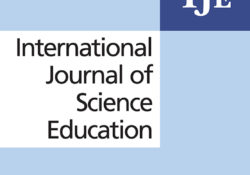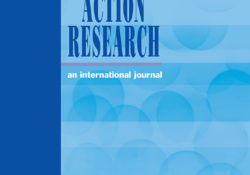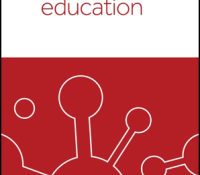tandfonline.com har udgivet en rapport under søgningen “Teacher Education Mathematics”: ABSTRACT ABSTRACT The aim of the present study is to advocate the use of a participatory action research programme, the Formative Scaffolding Programme (FSP), in mathematics. The FSP’s main structure is presented as well as an implementation of a class intervention, with the aim of exploring the FSP test cycle’s virtues in a social science class in a Swedish upper-secondary school. The motivations for the FSP’s development were to enhance students’ awareness of their mathematical proficiency, alter the level and strength of their self-efficacy, foster self-regulated learning (SRL), reduce and prevent mathematics-related anxiety, and visualise the learning process in mathematics. The primary findings of the study were there was a resemblance between the FSP setting and SRL phases, and that participation… Continue Reading →
Like this:
Like Loading...

tandfonline.com har udgivet en rapport under søgningen “Teacher Education Mathematics”: ABSTRACT ABSTRACT According to international benchmarks [Thomson, S., Wernert, N., O’Grady, E., & Rodrigues, S. (2017). TIMSS 2015: Reporting Australia’s results. Retrieved from Camberwell, Victoria: www.acer.edu.au/timss], Australia’s science education is still in decline and so the need for further investigation into preservice teachers is warranted. Utilising data from a broader mixed methods doctoral study [Norris, C. M. (2017). Exploring the impact of postgraduate preservice primary science education on students’ self-efficacy. Retrieved from http://ro.ecu.edu.au/theses/2040], this paper investigates the type of science learner entering into postgraduate preservice primary teacher education and how different learner types influence teacher self-efficacy and their effectiveness to teach science [Bleicher, R. (2009). Variable relationships among different science learners in elementary science-methods courses. International Journal of Science and Mathematics Education, 7(2),… Continue Reading →
Like this:
Like Loading...
tandfonline.com har udgivet en rapport under søgningen “Teacher Education Mathematics”: Abstract Abstract Within mathematics teaching, ways to help students resolve proportional reasoning problems remains a topical issue. This study sought to investigate how a simple innovative procedure could be introduced to enhance skill acquisition. In two classroom-based experiments, 12-year-old students were asked to solve proportional reasoning mathematics problems, on four occasions, over a two-week period. On the second occasion, students worked either with or without the benefit of worked examples. The examples demonstrated a unitising strategy in the context of solving proportional reasoning missing value problems. Students exposed to the worked examples improved scores on subsequent tests. The worked example instruction was (a) mediated entirely through booklets, (b) effective with both low- and high-SES students and (c) represents a promising… Continue Reading →
Like this:
Like Loading...
tandfonline.com har udgivet en rapport under søgningen “Teacher Education Mathematics”: Abstract Formulae display:?Mathematical formulae have been encoded as MathML and are displayed in this HTML version using MathJax in order to improve their display. Uncheck the box to turn MathJax off. This feature requires Javascript. Click on a formula to zoom. We examine a group (N = 88) of Swedish first-year engineering students, their motivation, self-efficacy, and beliefs about the nature of mathematics, and how these relate to their task performance in mathematics. In our data, engineering students who emphasized the exact reasoning in their view of mathematics performed significantly better in a set of mathematical tasks than those who emphasized the applications of mathematics. Similarly, the higher self-efficacy and the intrinsic and utility values of mathematics relate to better performance in… Continue Reading →
Like this:
Like Loading...
tandfonline.com har udgivet en rapport under søgningen “Teacher Education Mathematics”: Abstract Formulae display:?Mathematical formulae have been encoded as MathML and are displayed in this HTML version using MathJax in order to improve their display. Uncheck the box to turn MathJax off. This feature requires Javascript. Click on a formula to zoom. Theories of self-efficacy and approaches to learning are well-established in the psychology of learning. However, studies on relationships between the primary constructs on which these theories are developed are rarely reported in mathematics education research. Thus, the purpose of the current study is to provide empirical evidence for a potential causal relationship between perceived self-efficacy and approaches to learning. The present study adopts a cross-sectional survey research design that includes 195 engineering students enrolled on a first-year introductory calculus… Continue Reading →
Like this:
Like Loading...




